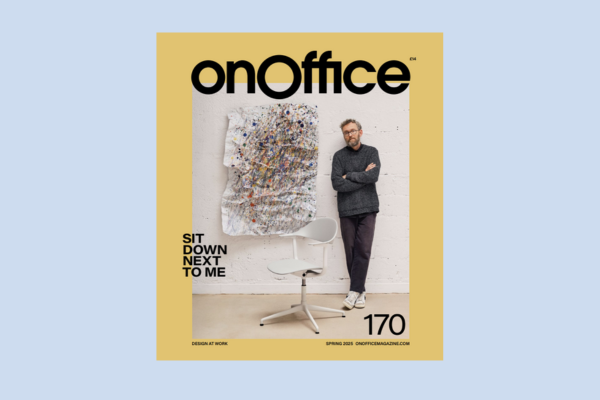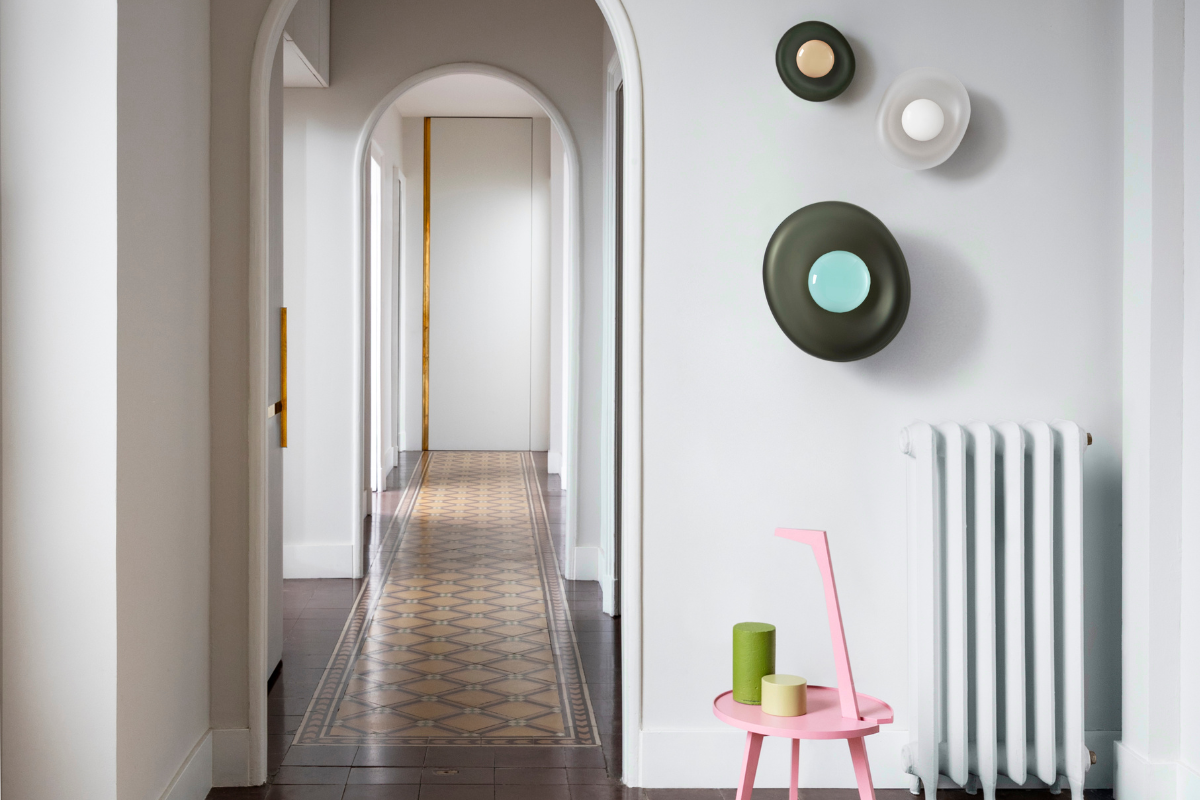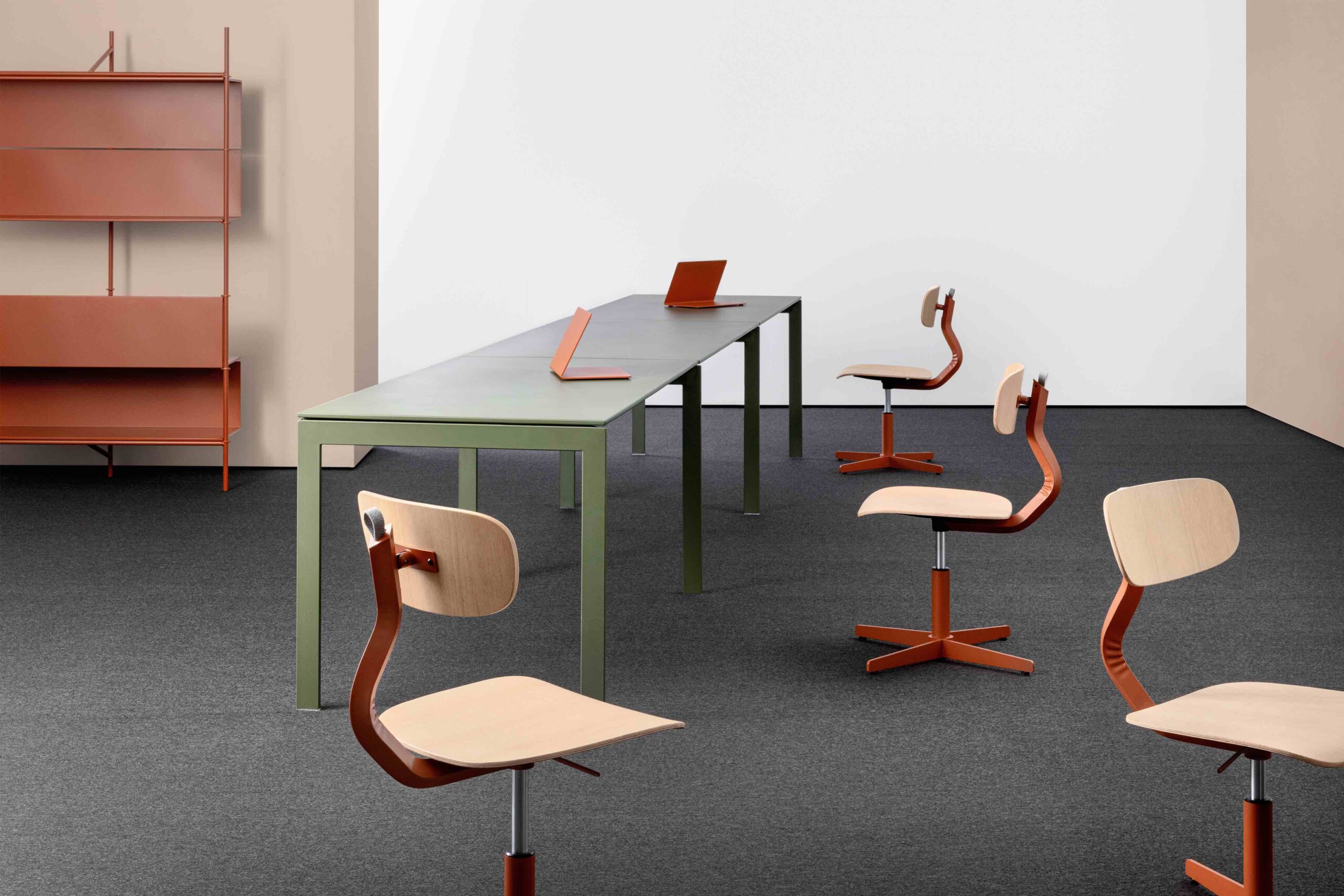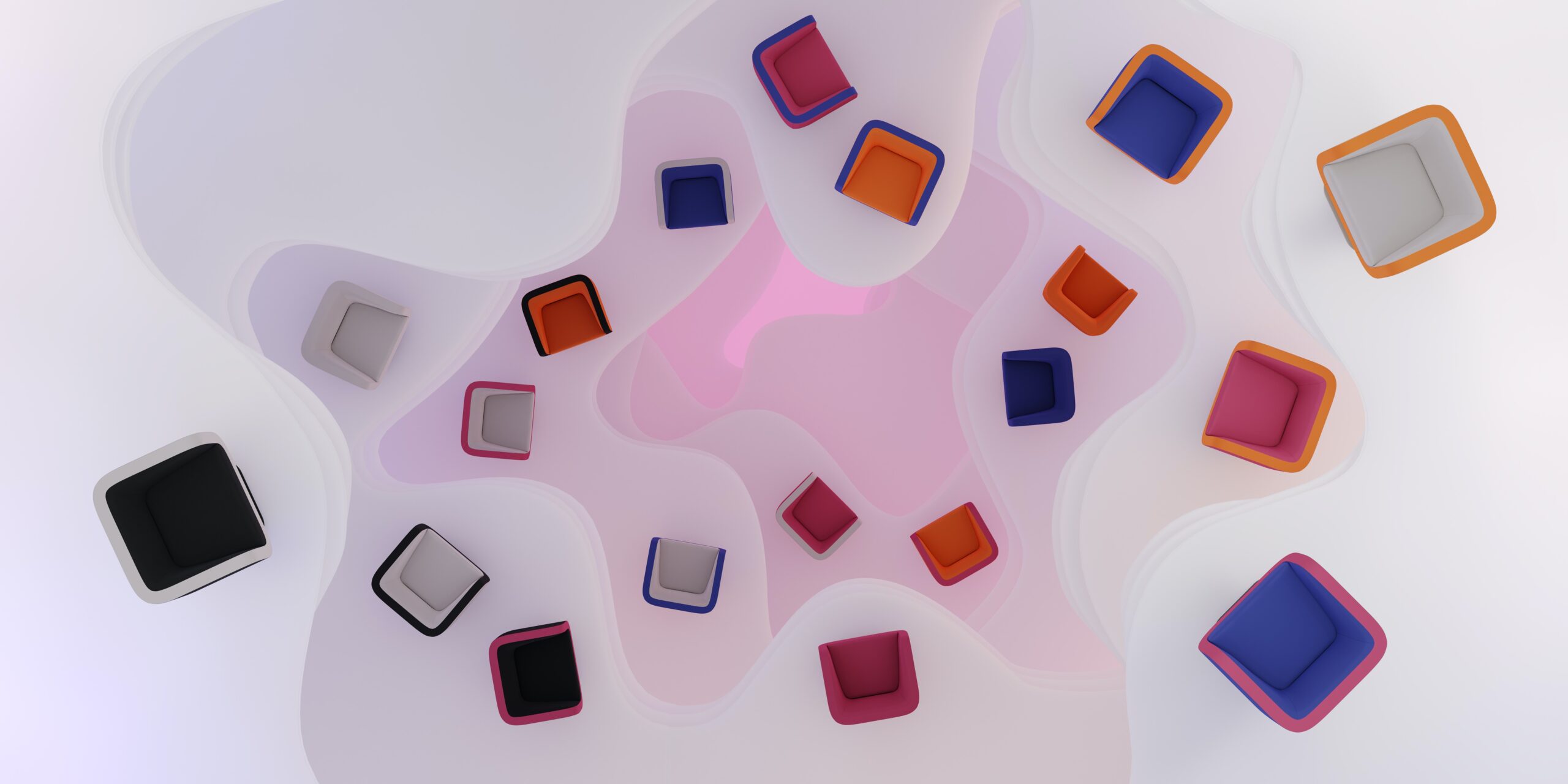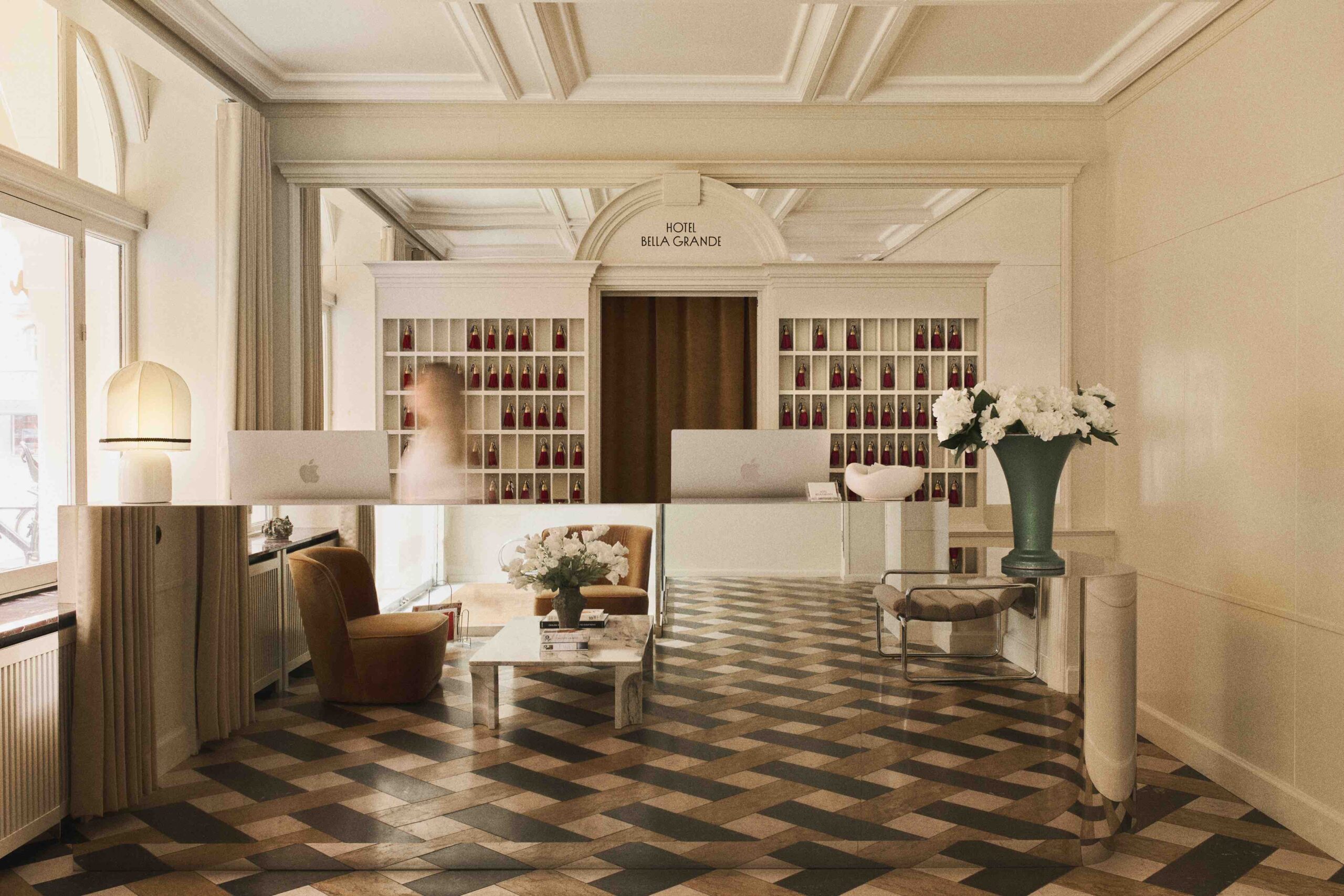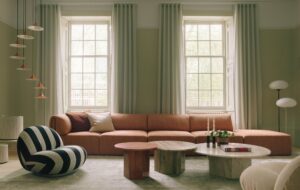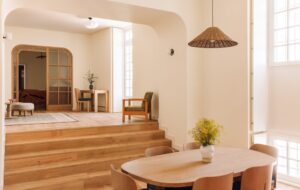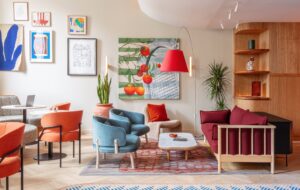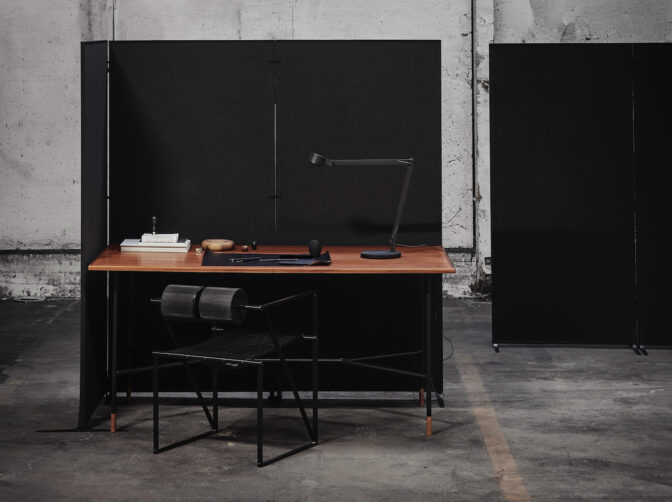
Reform Design Lab, a small furniture design studio in Sweden, merges art and technology to create beautiful design objects. Since its founding in 2021, it has become synonymous with producing aesthetically pleasing, slightly whimsical furniture – including lounge chairs and coffee tables – made using 3D printers from sustainable, bio-based materials. Its latest foray, however, has been a departure from the world of home furnishing to embrace another realm: the office.
At 2024 Stockholm Design Week earlier this year, the studio unveiled its latest piece – an eco-friendly divider screen for the modern office. The Coulisse screen (taken from the French word for scenery located at the side of a stage) is soundproof and lightweight, and its frame is constructed entirely from recycled paper, making it extremely climate-friendly and fully recyclable. The screen wall itself can be covered with just about any surface layer – Reform Design Lab is currently using recycled denim and polyester.
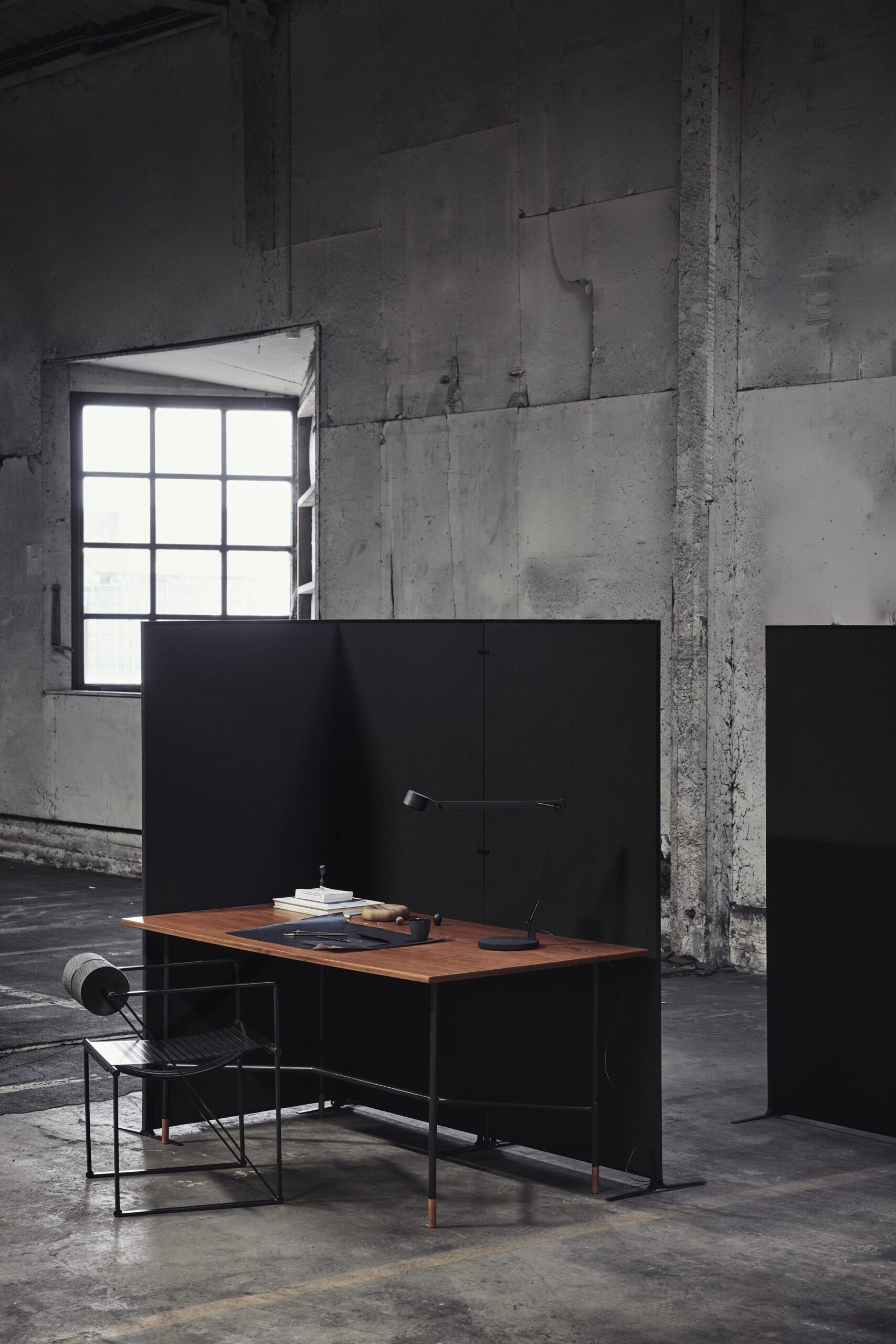
“It may sound simple, but it’s quite revolutionary,” says Måns Broman, CEO and co-founder of the design company. “In making it, we’ve used zero water and nearly no glue. That is a departure from the norm.” The process was made possible thanks to the expertise of Swedish-based Swt Paper – one of Scandinavia’s leading producers of sustainable paper-based materials. “Together, we’ve created something unique that has the potential to make an impact,” adds Broman.
The modern office’s carbon footprint can often be quite considerable. Desks and chairs contribute to carbon emissions in their creation and transportation, and at the end of their use, they frequently end up in landfills. “Not many people are looking at office furniture in this way, even though it is responsible for a large part of global emissions,” says Broman.
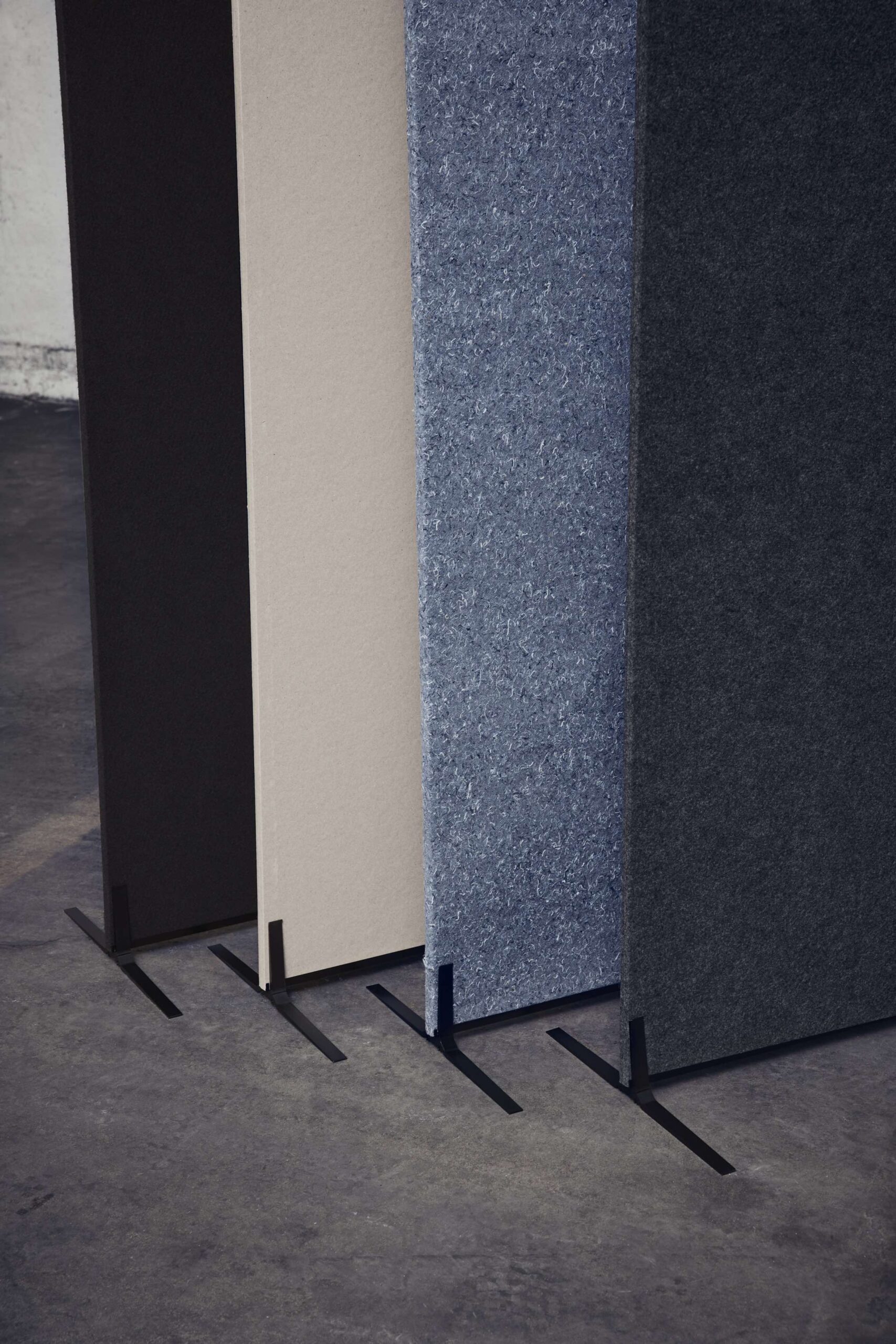
“If we can scale this sort of product into bigger markets – say the US – then you’ll see the amount of carbon go right down.” Reform Design Lab is still in the process of making a name for itself. “We’re still new to this and certainly new to office furniture,” says Broman. Yet the potential of its products is exciting. “Hopefully, we can disrupt the status quo.”
Reform Design Lab was founded by Broman, Jurij Rahimkulov (the company’s creative director) and Broman’s father, Rutger Andersson, with the mission to design high-end products in a sustainable way. “We wanted to show that using cutting-edge technology enables a new path towards circularity – a way to solve some of the problems the world faces today, namely climate change,” explains Broman.

The cutting-edge technology the company has adopted is large-scale 3D printers to produce its pieces. This means no waste and quick manufacturing (for instance, a divider wall can be printed in about 12 seconds). “We were at the right time with the possibilities that 3D print technology could provide,” he adds. “It’s allowed us to navigate a whole new way of manufacturing, something between traditional craftsmanship and mass production. Call it a circular approach.”
In 2017, Rahimkulov designed a prototype 3D-printed undulating Reform Lounge Chair, demonstrating how such technology could sustainably yield a high-quality design product. The chair propelled the start of Reform Design Lab (and gave the studio its name). The lounge chair quickly became something of a design icon and has been followed by a relaxed chaise longue and the Gestalt coffee table.
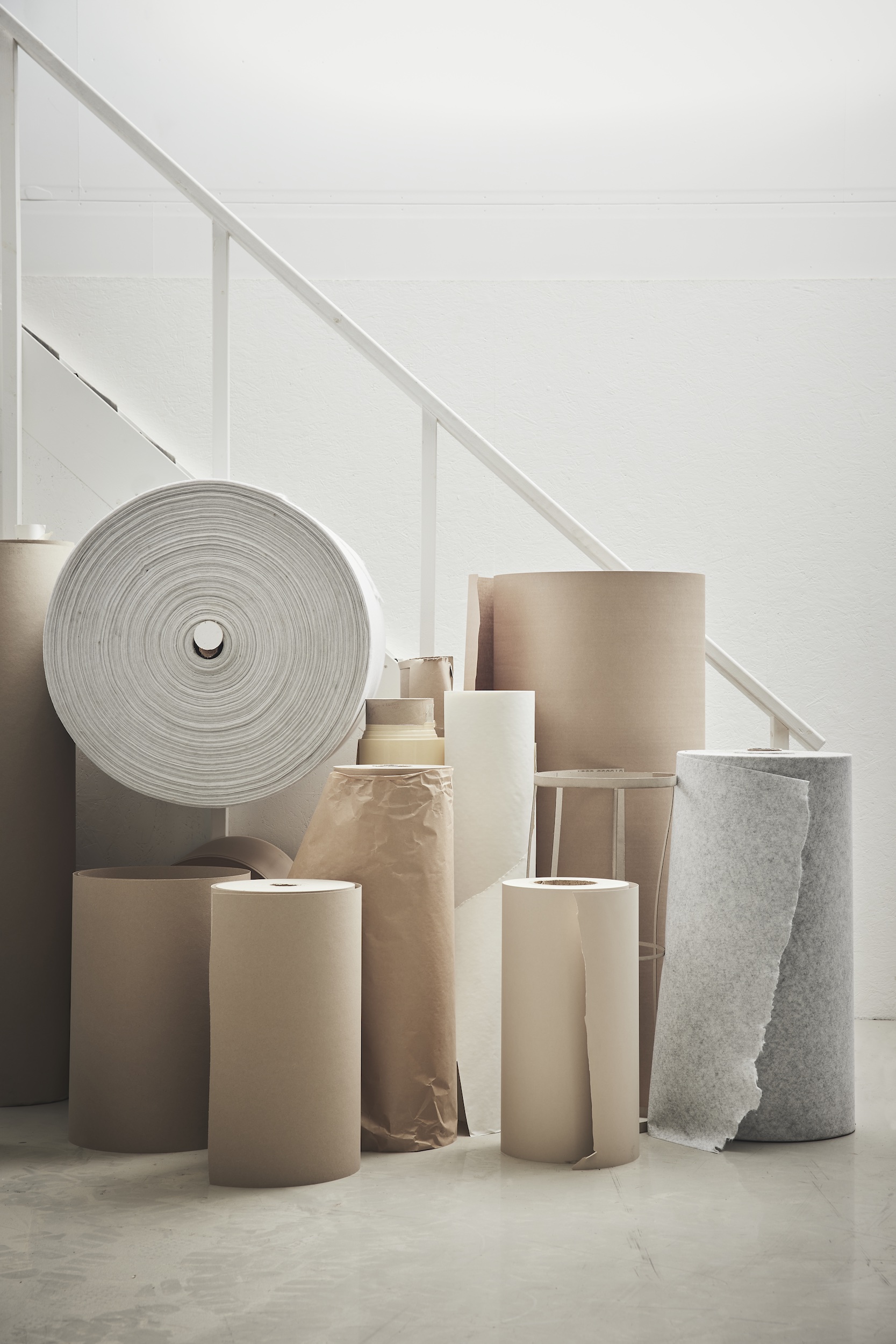
All of the Lab’s products use carefully selected bio-based materials. The chairs and coffee tables are produced in a wood-based bio-composite suitable for everyday use and recycling. This material choice allows the furniture to be used both indoors and outdoors and, significantly, it lowers its carbon footprint by up to 80 per cent.
More recently, the company has experimented with recycled textiles. For instance, the office divider screen is covered in recycled denim, which has been sourced from the fashion industry. “That’s the exciting part of these projects, finding these materials that help us save natural resources. The idea is that we will also help improve the circular flow of clothing companies,” says Broman.
“The ultimate goal is to print [furniture] using recycled textiles.” Beyond the division wall, the next project for the Lab is a cellulose soundproof wall (also suitable for offices). “We’re trying to find ways to cater to the workplace,” says Broman with a half-smile. “It’s a space well worth looking at.”
Images by Clive Tompsett
Enjoyed this article? Subscribe to our weekly newsletter here

